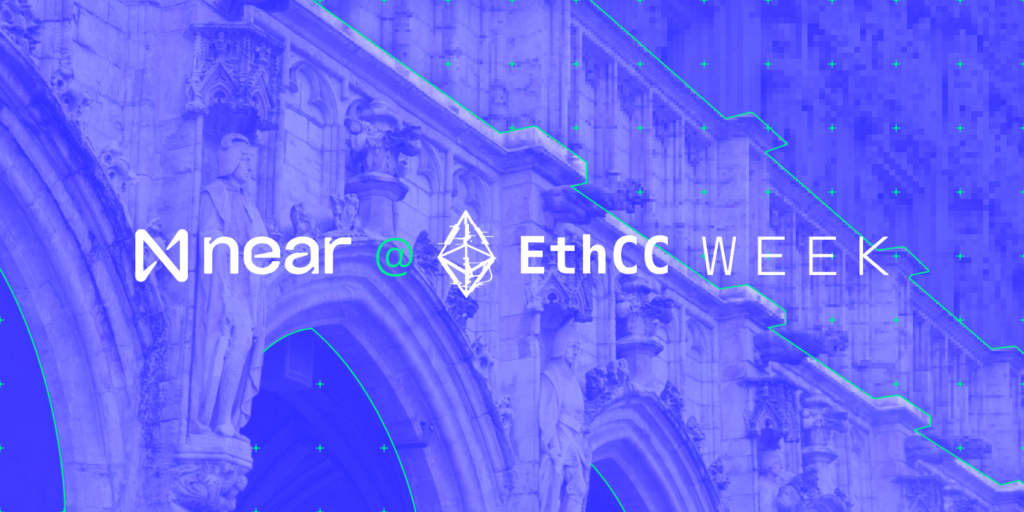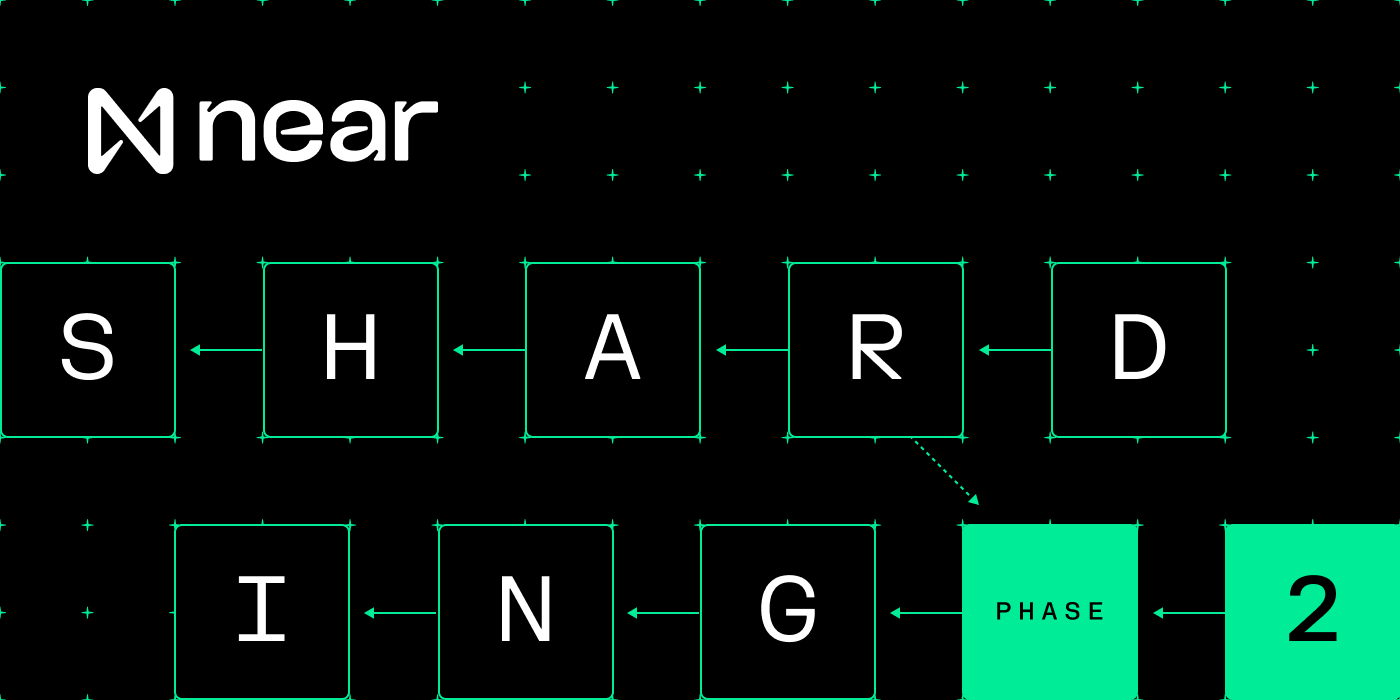Phase 2 of NEAR Sharding Launches
The NEAR Foundation announced today that the Protocol Work Group will launch testing for Phase 2 of Sharding this week, marking a major milestone in the network’s development roadmap. Phase 2 introduces fundamental upgrades to NEAR’s core protocol architecture, enabling even greater scalability and decentralization for the network. The fourth edition of Stake Wars, an incentivized community testing initiative, will kick off on February 1.
NEAR’s vision of chain abstraction to facilitate broad adoption of decentralized apps requires an extremely scalable blockchain layer. From the start, NEAR has been designed to scale with demand towards mainstream adoption. A primary benefit of the new sharding implementation will be an up-to-10x speed improvement to NEAR’s already-fast transaction throughput. Sharding is NEAR’s unique approach to scaling, which partitions the blockchain into multiple parallel “shards.” Combined with NEAR already having the lowest transaction fees in Web3, this sharding upgrade positions NEAR at the forefront of Web3 in terms of both performance and scalability. Phase 2 greatly improves the network’s capacity for end user volume and is an important landmark on the road to global-scale usage of Web3.
“NEAR continues to make progress on bringing Chain Abstraction infrastructure that can scale to a billion users and beyond,” said Illia Polosukhin, Co-Founder of NEAR Protocol and CEO of NEAR Foundation. “The scalability improvements from stateless validation can unlock even better user experiences for more end-user applications, whether multichain DeFi-style dapps or those aimed at mainstream users.”
Phase 2 introduces the most significant changes to the NEAR Protocol since its Mainnet launch in 2020. The biggest of these is the implementation of stateless validation: an innovative approach to state change, or the process of updating the status of all the data posted to the blockchain. Now, NEAR validators no longer have to maintain the state of a shard locally and can retrieve all the information they need to validate state changes, or “state witness,” from the network.
With stateless validation, NEAR can finally achieve the truest form of sharding, where shards can function mostly independently at the consensus level to improve decentralization and throughput while preserving the highest security guarantees. An added benefit is that the hardware requirements to run most validator nodes are dramatically reduced (a smaller number of “chunk proposer” validators with specialized hardware will validate blocks with state held in memory). This also paves the way for greater decentralization of the network by lowering the barrier to entry to become a validator.
“We’re very excited about the potential for future proofing the NEAR protocol design with stateless validation,” said Bowen Wang, Director of Protocol at Pagoda. “From a research perspective, we expect that as zero-knowledge tech matures, more protocols will adopt a similar approach, where a smaller set of expensive machines execute transactions and produce proofs, while a bigger validator set validates the proofs. This will enable more unified security across networks and defragment Web3, advancing a key aspect of the chain abstraction vision.”
Phase 2 is a shift in direction from the original Nightshade sharding architecture NEAR launched with in 2020, bypassing some fundamental roadblocks in that protocol design around the implementation of challenges in the initial idea of Phase 2, while also unlocking additional benefits. Other network improvements in Phase 2 include in-memory trie, wherein validator nodes can load the entire state into RAM for maximized performance. This will greatly improve transaction throughput thanks to minimizing storage access.
NEAR users should not experience any downtime with the transition to Phase 2 and no special action is required from validators, apart from adjusting hardware specs. Through dozens of protocol upgrades since Mainnet launch, including three major upgrades, the core NEAR protocol has had 100% uptime with zero disruption for developers and end users.
On Thursday, February 1, Stake Wars IV: Attack of the Transactions will launch to incentivize battle testing of the new sharding architecture. Planned to run through March 31, the latest edition of Stake Wars invites community members to test features and generate traffic. For more information about participating and deeper technical detail about Phase 2, visit the Stake Wars page on Github.
With the launch of Phase 2, NEAR becomes one of the only networks in Web3 to implement stateless validation to improve scaling and paves the way for further network performance and scalability improvements in the future roadmap. A technical paper with more detail about NEAR’s new sharding design is forthcoming later in Q1. Phase 2 is expected to launch on NEAR Mainnet in May 2024.
Share this:
Join the community:
Follow NEAR:
More posts from our blog



